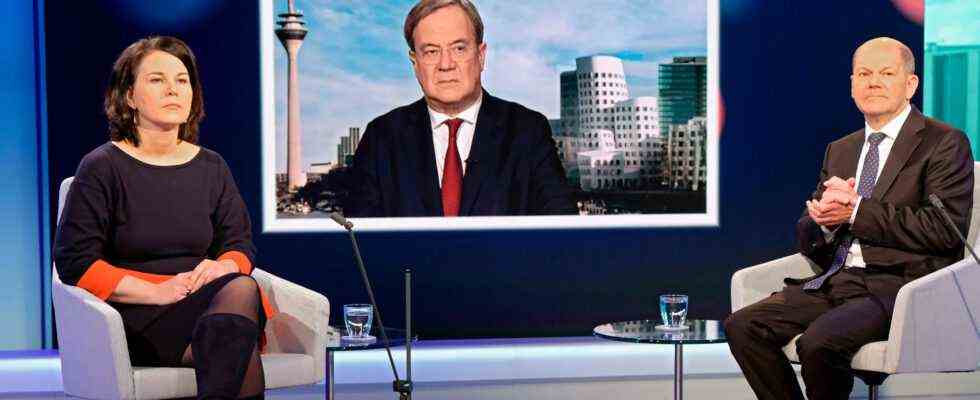Exclusive
Status: 06.09.2021 6:00 p.m.
Current research that supports the SWR show: Annalena Baerbock is most often affected by disinformation campaigns during the election campaign. Some fake news is then also taken over by newspapers.
Among the top candidates for the federal election, Annalena Baerbock is by far the most frequent victim of disinformation campaigns and fake news. This is the result of a study by the Avaaz organization, which SWR is available in advance. According to this, in the period from January to the end of August 2021 there was no other politician spreading as many false reports as about the top candidate of the Greens: 25 percent of all false reports examined. Chancellor Angela Merkel (13 percent) and CDU candidate Armin Laschet (ten percent) follow at a considerable distance.
Exclusively for the ARD documentation “The secret opinion makers. How we are manipulated in the election campaign”, the data analysts from Pressrelations and Newsguard have also investigated false reports in various media. They come to the same conclusion as Avaaz: The vast majority of disinformation campaigns are aimed specifically against Baerbock and the Greens. In the investigation period up to mid-July, only 14 articles related to the SPD were found, according to Florian Klaus from the media observer Pressrelations. At the CDU / CSU there were 285 – but more than 16,000 contributions to the Greens.
According to their own information, the Avaaz experts evaluated more than 800 false reports over several months, which were massively disseminated via social media platforms, among other things. In doing so, they also resorted to the results of the “fact checkers” from AFP, DPA and CORRECTIV in order to check the truthfulness of reports.
Baerbock and the “pet lie”
The false reports about the three top candidates for the federal election are therefore distributed very unevenly: around 70 percent related to Baerbock, around 30 percent to Armin Laschet – while virtually no false reports were distributed about Olaf Scholz, according to the results of the study.
The organization Avaaz also collected numerous examples: The rumor spread that Baerbock supposedly wanted to have pets banned, including on Facebook. This hoax made it into reputable media, such as daily newspapers, via social media, even though the story was wrong. As well as alleged nude photos of the top candidate – which never existed.
Christoph Schott, campaign director at Avaaz: “Disinformation has also reached mainstream audiences in Germany. The Federal Republic runs the risk of following in the footsteps of the USA, where Trump’s tweets – whether true or false – were widely circulated by the mainstream media. “
Russia is heavily involved
Apparently, Russian media also play an important role in spreading false reports. The Russian platform RT DE has often been criticized for spreading disinformation. The station is monitored by the Office for the Protection of the Constitution, among others. According to the current study, false information from RT is particularly often shared by right-wing groups and lateral thinkers on social platforms. The Russian broadcaster generated millions of clicks, primarily with reports on lateral thinkers and anti-Covid demos.
At the request of the SWR RT DE denied that it was spreading fake news, for example on corona issues, via its own channels: “RT DE does not operate campaign journalism, but remains grounded in the facts and presents a wide range of perspectives, as all news organizations should do. We are not only known case in which the Press Council publicly reprimanded RT DE. “
Facebook under fire
The Avaaz experts also criticize the fact that the warnings about fake news on the Facebook platform do not always work in practice. Avaaz was able to collect numerous examples in which proven false reports were distributed even without a warning from Facebook. For this, it was sufficient, for example, if the message or the photo were only slightly changed.
“After we have already pointed out these shortcomings to Facebook in the past, it is very astonishing that this well-known problem is still so widespread in the meantime,” says Christoph Schott from Avaaz, especially since “Facebook assured me that the federal election has ‘Top Priority’ “- that is, the highest priority.

